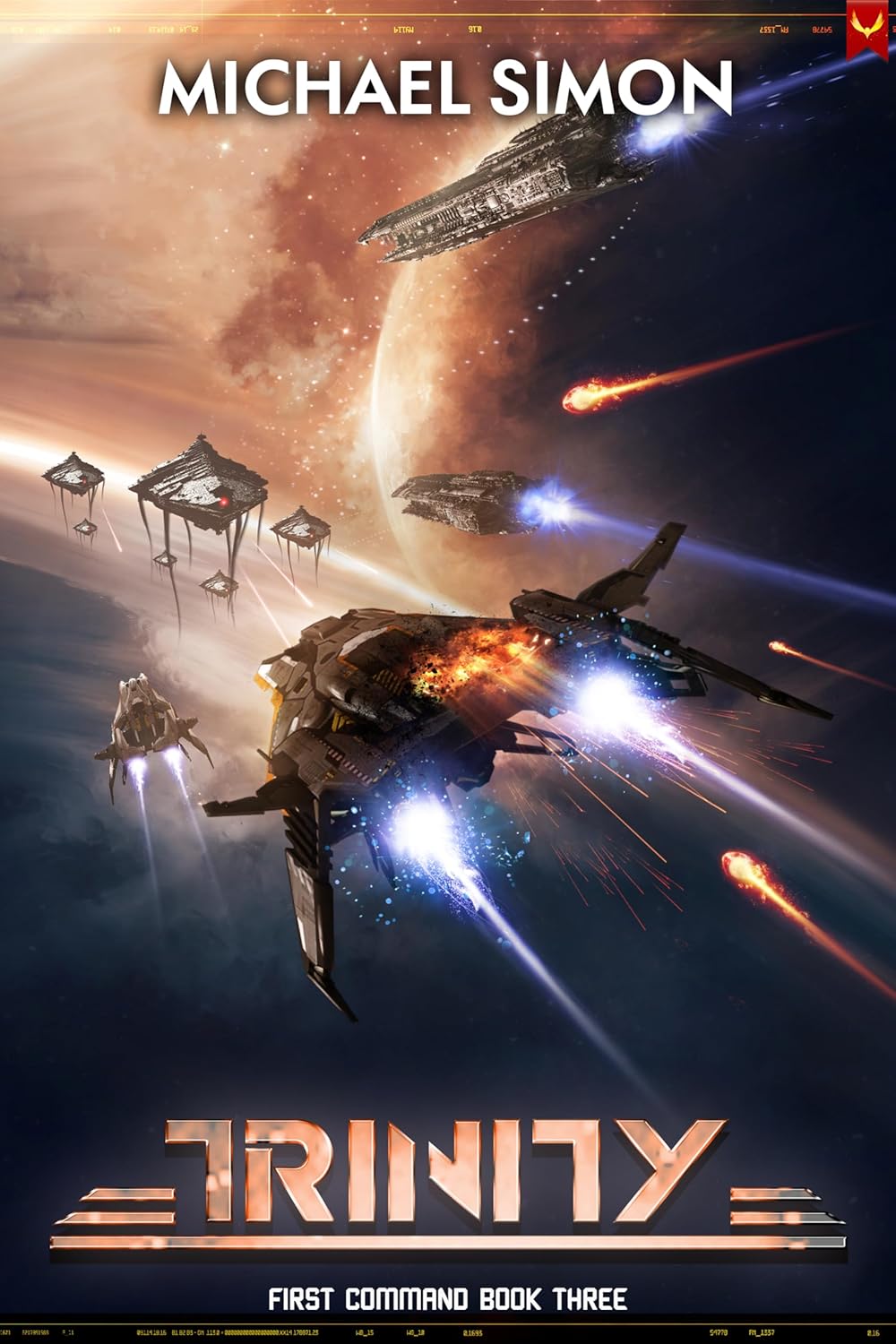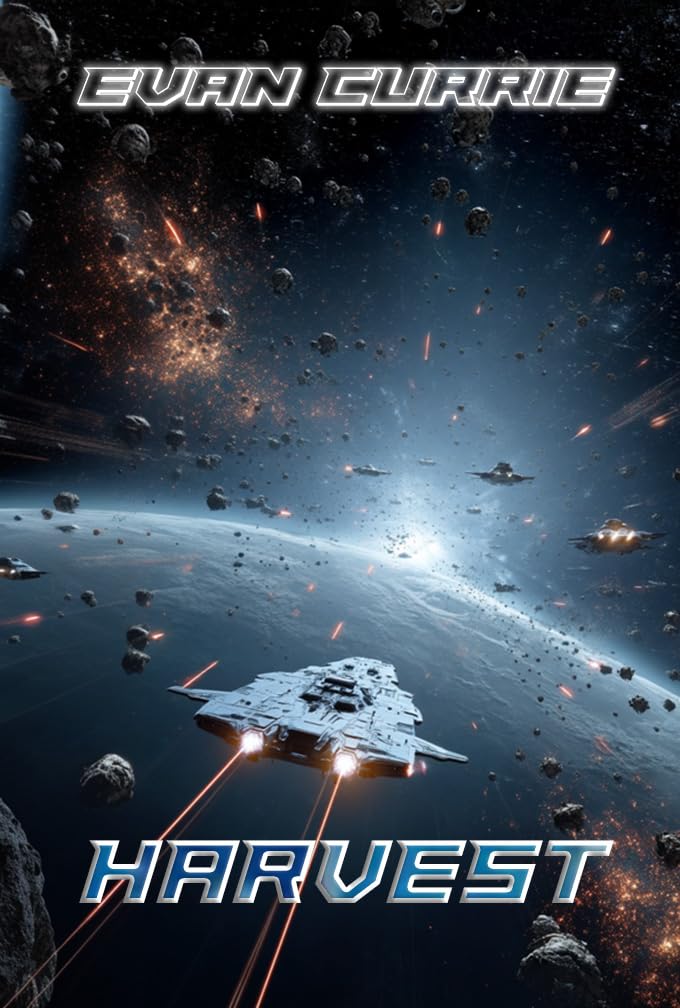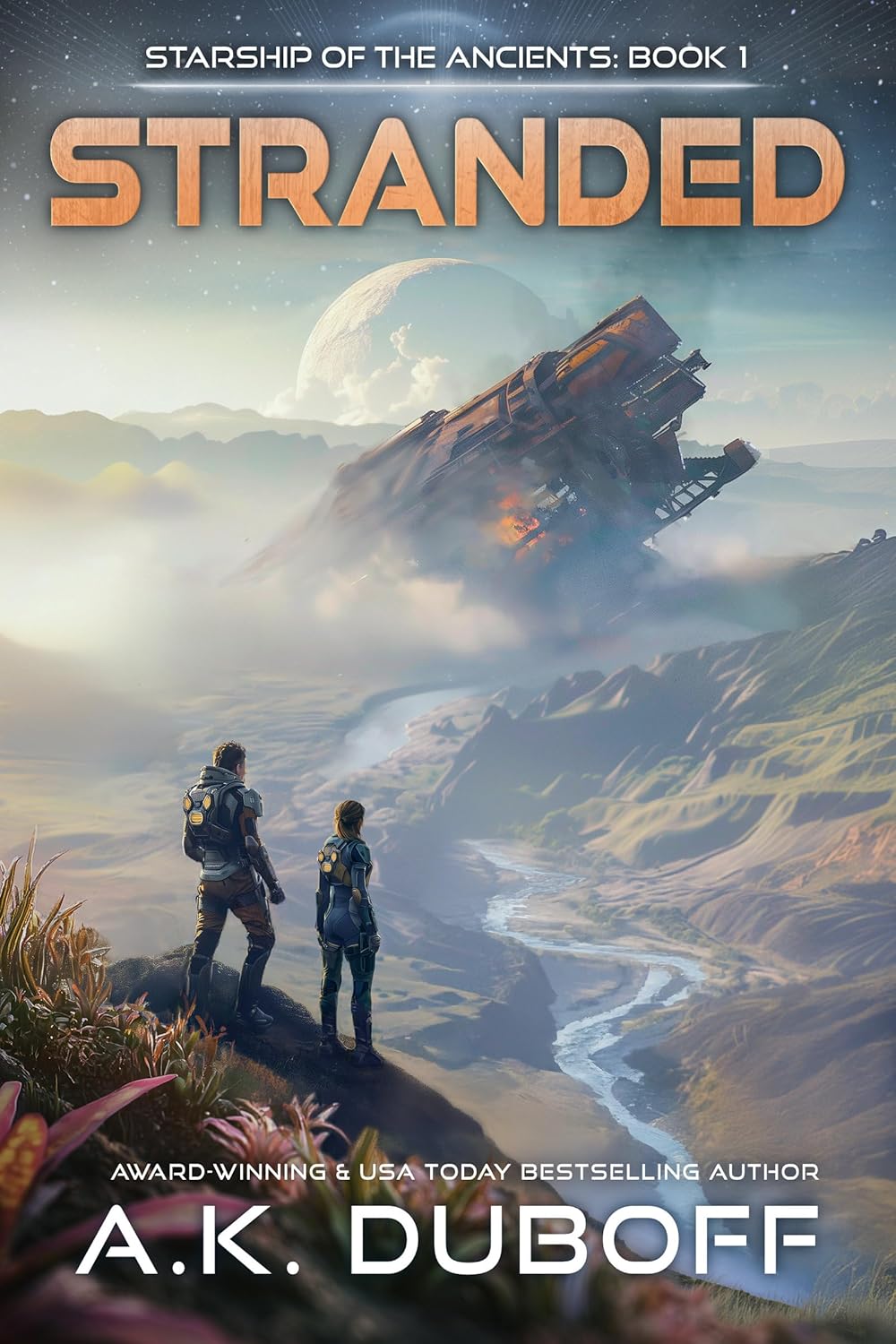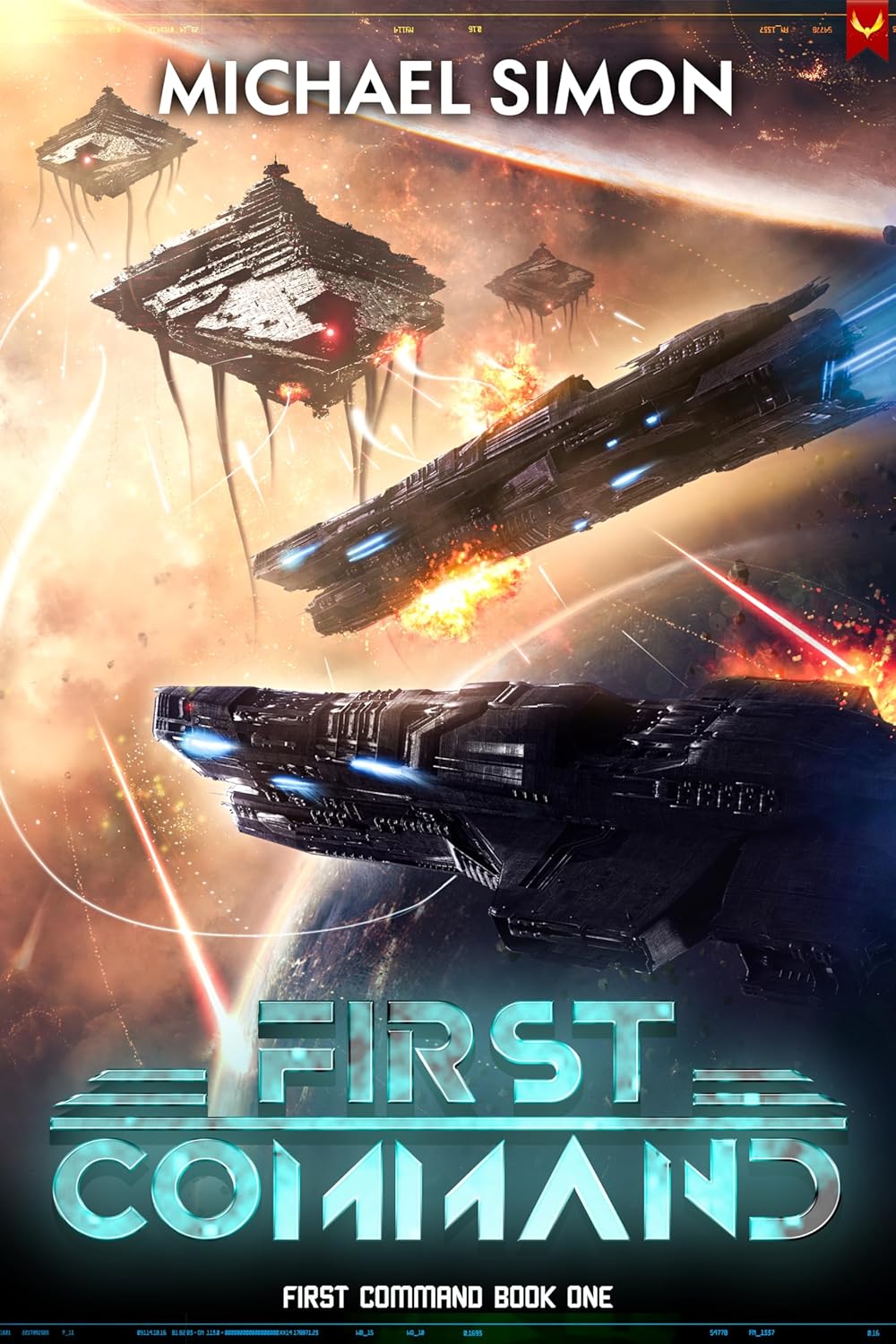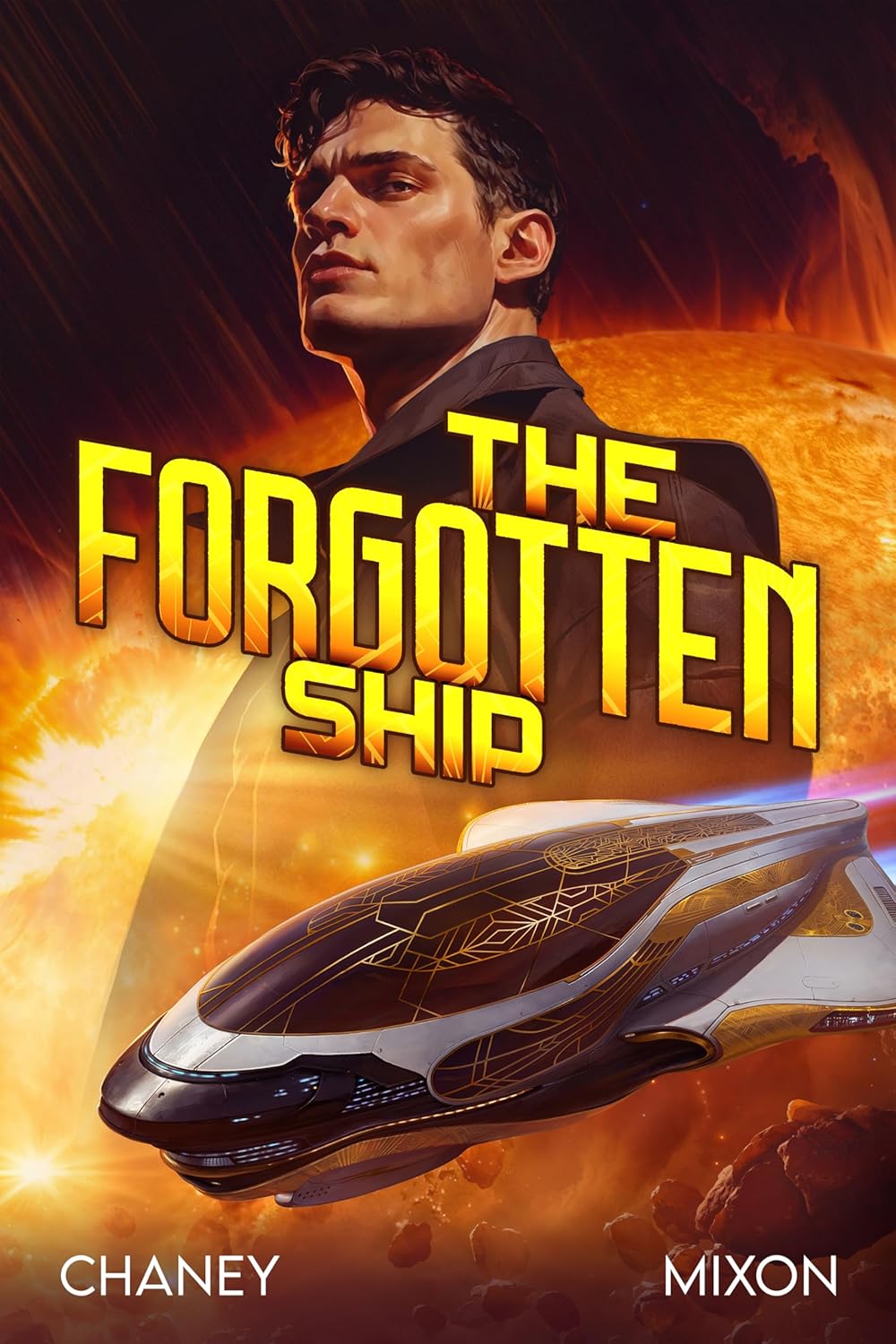Best-Selling Military Science Fiction Novels in 2025
Military science fiction continues to dominate bestseller lists in 2025, capturing readers with its compelling blend of tactical action, technological innovation, and explorations of leadership under extreme circumstances. This year's top-selling novels showcase the genre's remarkable versatility—from desperate last stands against alien invasions to complex interstellar politics, from archaeological adventures uncovering ancient technologies to Arthurian legends reimagined across the stars. These stories not only entertain with their pulse-pounding combat sequences but also engage readers with profound questions about duty, sacrifice, and the essence of humanity when tested by the crucible of interstellar warfare.
What makes this year's military science fiction particularly compelling is the diversity of perspectives and scenarios on display. Authors are moving beyond simple "humans versus aliens" narratives to explore the complex ethical dimensions of warfare, the psychological toll of combat, and the political machinations that often drive military conflicts. Whether following scrappy underdogs salvaging derelict vessels to fight overwhelming odds or legendary starships awakening after centuries of dormancy, these novels demonstrate how military science fiction continues to evolve while remaining true to the elements that have made it a perennial favorite among readers seeking both thoughtful speculation and adrenaline-fueled adventure.
What Makes Military Science Fiction So Compelling
Military science fiction captivates readers through its unique ability to blend visceral action with speculative technology and profound explorations of human nature under extreme duress. By transposing military structures, tactics, and conflicts into futuristic or alien environments, the genre creates scenarios where the highest human virtues—courage, loyalty, sacrifice, and ingenuity—can be tested against challenges that transcend contemporary reality. This allows authors to examine timeless aspects of the warrior experience while simultaneously exploring how warfare might evolve alongside technological advancement, creating narratives that feel both familiar to military history enthusiasts and wildly innovative in their speculative elements.
Beyond its action-oriented appeal, military science fiction offers readers thoughtful explorations of leadership, ethics, and political systems under the pressure of existential threats. The best works in the genre use interstellar conflicts and advanced technologies as backdrops for examining complex questions: How do societies balance security with liberty during wartime? What moral compromises might be justified when facing extinction? How does military service transform individual identity and psychology? By addressing these questions through the accessible framework of space battles and futuristic weapons systems, military science fiction provides both thrilling entertainment and substantive philosophical engagement, inviting readers to consider how humanity's most fundamental values might withstand the ultimate tests of future warfare. This combination of intellectual depth and visceral excitement explains why the genre continues to attract devoted readers across generations.
The Current Top 10 Best-Selling Military Science Fiction Novels on Amazon
1. Trinity (First Command Book 3) by Michael Simon
Michael Simon delivers a pulse-pounding conclusion to his "First Command" trilogy with "Trinity," which finds humanity at the brink of extinction as the relentless Coven Empire prepares its final assault on the inner planets. The novel centers on Cole Jackson, who has evolved from a fresh Academy graduate in the first book to a battle-hardened commander now trapped behind enemy lines with his misfit crew. Simon excels at creating desperate scenarios with narrow paths to victory, as Jackson ingeniously resurrects his first posting ship—the derelict Freedom—from a military scrapyard using stolen alien technology. The stakes escalate dramatically when Jackson learns of Fleet's "final Hail Mary" involving a revolutionary weapon that could turn the tide against the Coven, but only if he can penetrate deep into enemy territory to gather crucial intelligence on the alien homeworld's location.
What distinguishes "Trinity" from standard military science fiction fare is Simon's meticulous attention to the logistical and technical challenges of space warfare. Rather than simply depicting glamorous battles, the novel explores how Jackson and his crew must improvise with limited resources, salvaging and adapting technologies while evading detection. This "make-do" approach creates a refreshing underdog narrative that stands apart from stories featuring overwhelming technological superiority. Simon's greatest strength lies in balancing tactical space combat with character development, showing how Jackson's leadership style has evolved through trial by fire while maintaining the camaraderie of his diverse crew. The novel's exploration of how desperate circumstances can forge unlikely heroes and innovative solutions offers a compelling reminder that humanity's greatest advantage in interstellar conflict might be adaptability rather than firepower. As the culmination of a trilogy described as "a science fiction thrill ride about a crew of young soldiers mustering the courage to fight back against both a vicious alien enemy and the terrifying void of being stranded in space," "Trinity" delivers a satisfying conclusion while maintaining the tension and innovation that have defined the series.
Buy Now2. Harvest: An Odyssey Novel (After the Odyssey Book 2) by Evan Currie
Evan Currie's "Harvest" delivers a masterful continuation of his "After the Odyssey" series, focusing on the aftermath of Earth's fall and humanity's determination to exact justice upon their Imperial conquerors. The novel's concise, powerful opening line—"The Empire's harvest has come due, and the survivors of the fall of Earth are determined to ensure that the Imperials reap exactly what they have sown"—immediately establishes both the revenge narrative and the agricultural metaphor that frames the story. Currie excels at creating monumental space conflicts as "the monstrous powers of the Imperial Fleet, the Drasin swarm, the Terran survivors and their allies all come together for a final confrontation." This convergence of multiple factions creates a complex battle scenario far beyond simple binary conflicts, reflecting the political complexities that often characterize the aftermath of imperial aggression.
What distinguishes "Harvest" from standard military science fiction revenge narratives is Currie's sophisticated exploration of how civilizational conflicts reshape galactic power structures. The novel's closing assertion that "the Galaxy will not be the same when the dust finally clears" suggests a focus not merely on the immediate military victory but on the long-term political and social consequences of warfare—a theme that elevates the narrative beyond tactical combat to examine strategic outcomes. Currie balances spectacular space battles with thoughtful examination of how survivors rebuild and reimagine their society after catastrophic losses, creating a story that satisfies both as military adventure and as political speculation. By positioning human survivors as agents of cosmic justice rather than helpless victims, "Harvest" offers a cathartic narrative of resilience and determination that resonates with readers facing their own challenges in an uncertain world.
Buy Now3. Stranded (Starship of the Ancients Book 1): A Space Opera Adventure by A.K. DuBoff
A.K. DuBoff skillfully blends military science fiction with archaeological mystery in "Stranded," the first installment in the "Starship of the Ancients" series. The novel follows ex-soldier Evan, whose plans for peaceful retirement on a remote colony world are shattered when his transport ship explodes in orbit. Crash-landing with a small group of survivors far from their intended destination, Evan's military training and investigative instincts become crucial to their survival. DuBoff excels at creating a compelling protagonist whose past experience as a soldier shapes his approach to crisis management, while his investigative background drives him to question whether their "accident" was deliberately engineered. The discovery of an ancient alien starship hidden on the planet transforms what begins as a survival narrative into something far more complex, as Evan realizes that solving this archaeological mystery "will be the biggest case of his life."
What distinguishes "Stranded" from similar military protagonist narratives is DuBoff's skillful integration of survival challenges, xenobiological discovery, and conspiracy investigation. Rather than focusing exclusively on combat, the novel explores how military training provides adaptability and leadership skills valuable in crisis situations beyond warfare. The partnership between Evan and xenobiologist Anya creates a balanced narrative that values both tactical knowledge and scientific understanding as essential tools for survival on an alien world. DuBoff's greatest strength lies in maintaining suspense across multiple fronts—the immediate survival challenges, the mystery of the ancient starship, and the wider conspiracy that orchestrated the colonists' predicament. By positioning an ex-soldier as both survival expert and investigator, the novel creates a protagonist whose military background informs but doesn't define his approach to the multilayered challenges facing the stranded colonists. As the opening to a promising space opera series, "Stranded" establishes a rich foundation for exploring both the ancient mysteries of alien civilizations and the contemporary conspiracies that seek to control them.
Buy Now4. First Command by Michael Simon
Michael Simon launches his compelling military science fiction series with "First Command," which introduces Ensign Cole Jackson, a fresh Academy graduate whose first posting aboard the starship Freedom coincides with a devastating alien offensive by the Coven Empire. When Freedom's sister ship Hood is crippled in an ambush, Jackson is dispatched to salvage parts—only to be marooned aboard the powerless vessel when Freedom is called away. Simon expertly establishes both the physical and psychological challenges facing his protagonist: not only must Jackson find ways to restore power to the derelict ship with limited resources, but he must also "find the confidence to take control" and "whip his tiny crew into shape" despite his junior rank and inexperience. This dual challenge—technical problem-solving and leadership development—creates a compelling framework for a military coming-of-age narrative.
What distinguishes "First Command" from similar military science fiction debuts is Simon's focus on resourcefulness and adaptation rather than overwhelming firepower or tactical brilliance. Jackson doesn't have access to the latest technology or veteran crew members; instead, he must work with "a group of malcontent techs" to transform a powerless hulk into a combat-ready vessel through ingenuity and determination. This "making do with what you have" approach creates more authentic tension than scenarios featuring technological superiority, as readers witness Jackson's growth from hesitant ensign to capable leader through a series of escalating challenges. Simon excels at balancing the technical aspects of starship repair with the human dimensions of leadership under pressure, creating a narrative that satisfies both as engineering puzzle and character development journey. By focusing on a junior officer forced into command rather than an established military leader, the novel offers a fresh perspective on military hierarchy and the unexpected paths through which leadership emerges in crisis situations.
Buy Now5. Here Be Dragons (The Starship In The Stone Book 2) by M.R. Forbes
M.R. Forbes delivers a masterful blend of Arthurian legend and space opera in "Here Be Dragons," the second installment in "The Starship In The Stone" series. Continuing the journey of reluctant hero Thomas, who never expected to find the legendary starship Excalibur beneath a Welsh lake, the novel expands both the scope and stakes of his quest. Forbes excels at creating a richly textured universe where ancient mythology and futuristic technology seamlessly intertwine, as Thomas's journey leads him "into the heart of enemy territory, the halls of ancient dragons, and the path of knights who remember a time when hope still burned bright." This integration of mythological elements with military science fiction creates a unique narrative framework that appeals to fans of both traditional space combat and legendary heroic journeys.
What distinguishes "Here Be Dragons" from similar military science fiction narratives is Forbes's sophisticated exploration of the hero's journey in a space opera context. Rather than focusing exclusively on tactical warfare, the novel examines Thomas's evolution from accidental ship captain to genuine leader—someone who must "prove he's more than just the captain of a legendary starship" and "become the leader others believe him to be." This psychological dimension adds depth to the space battles and political intrigue, creating a protagonist whose greatest conflicts are often internal. Forbes excels at balancing action sequences with character development, showing how Thomas's growing crew forms new alliances while confronting both external threats from the Draconite hunters and internal doubts about their mission. By explicitly acknowledging Thomas's uncertainty—"Even if he still isn't sure he believes it himself"—the novel creates a refreshingly human hero whose vulnerability becomes a source of strength rather than weakness. This combination of mythological resonance, military action, and character growth creates a multidimensional narrative that transcends typical genre boundaries.
Buy Now6. The Forgotten Ship by J.N. Chaney
J.N. Chaney and Terry Mixon blend archaeological adventure with military space opera in "The Forgotten Ship," which introduces the morally complex artifact thief Drake who justifies his profession with the philosophy that valuable items "belong in a museum, after all, not hoarded by a select few in their private vaults." When Drake discovers a map to a legendary lost mega-freighter "once belonging to the ancient royal family," he embarks on what should be a straightforward heist of "the find of a lifetime." The authors excel at creating escalating complications—from the map being housed in a super vault surrounded by trigger-happy guards to the appearance of "a woman with an eyepatch and a vendetta"—that transform Drake's treasure hunt into a survival challenge. The novel's enticing suggestion that "getting the ship and keeping it will be much more difficult" establishes both immediate and long-term conflicts that drive the narrative forward.
What distinguishes "The Forgotten Ship" from similar treasure-hunting narratives is its skillful integration of archaeological mystery with military history and technology. Rather than simply featuring a valuable ship as passive treasure, the novel suggests that the royal mega-freighter possesses capabilities and significance beyond mere monetary value—perhaps including advanced military technology from a forgotten era. Chaney and Mixon excel at creating a protagonist who must evolve from clever thief to responsible steward of a historically significant vessel, potentially forcing Drake to reconsider his "steal first, ask questions later" approach to archaeological artifacts. The novel's promise of "science fiction intrigue, galactic exploration, and unfathomable discovery" suggests a narrative that balances action-oriented theft and escape sequences with deeper exploration of how rediscovered military technology might reshape galactic power dynamics. By positioning their protagonist as neither military professional nor academic archaeologist but something in between, the authors create a unique perspective on the ethical questions surrounding the recovery and use of ancient military assets.
Buy Now7. The Starship In The Stone by M.R. Forbes
M.R. Forbes delivers a brilliant reimagining of Arthurian legend in "The Starship In The Stone," which introduces Thomas, a flawed protagonist seeking redemption who discovers that the legendary Excalibur isn't a sword in a stone but an ancient starship hidden beneath a mountain. The novel opens with Thomas responding to cries for help—"his chance for redemption"—only to find himself plunged into a world where "magic and technology intertwine and ancient powers lurk in the shadows." Forbes excels at creating a seamless integration of mythological elements with science fiction concepts, as Thomas learns from the ship's AI that he alone can command this legendary vessel. This chosen-one narrative gains complexity as Thomas finds himself "on the run across a galaxy more astonishing and treacherous than he ever imagined," establishing both external dangers and the internal challenge of a reluctant hero who must accept his unexpected destiny.
What distinguishes "The Starship In The Stone" from similar military science fiction narratives is its fresh perspective on the relationship between ancient myths and advanced technology. Rather than treating Arthur's legend as mere window dressing, Forbes creates a cohesive framework where the original Arthurian story functions as historical foundation for Thomas's contemporary journey. The novel explores how legendary military leaders and their technologies become mythologized over time, suggesting that sufficiently advanced technology might indeed be indistinguishable from magic to less developed civilizations. Forbes excels at balancing action sequences with Thomas's personal growth as he transitions from accidental discoverer to intentional leader, creating a protagonist whose greatest challenge isn't external threats but accepting that "he, of all people, is responsible for reigniting the hope of a fallen kingdom." By explicitly acknowledging that "King Arthur's legend may be complete, but his is just beginning," the novel positions itself as both homage to and evolution of one of Western culture's most enduring military myths, creating a narrative that resonates with timeless themes while offering fresh science fictional context.
Buy Now8. The Mercy of Gods (The Captive's War Book 1) by James S. A. Corey
The acclaimed author team behind The Expanse returns with "The Mercy of Gods," a sweeping space opera that positions humanity as pawns in an ancient conflict between cosmic powers. Set on the planet Anjiin, where human history has been lost "in the fog of history," the novel begins with the invasion of the Carryx—"part empire, part hive"—who have "waged wars of conquest for centuries, destroying or enslaving species across the galaxy." When they abduct the best and brightest of Anjiin society, including unassuming research assistant Dafyd Alkhor, the captives find themselves thrust into a Darwinian competition against other enslaved species with "extinction as the price of failure." Corey excels at creating a narrative that operates simultaneously on multiple scales—from Dafyd's personal struggle for survival to the grand cosmic conflict between the Carryx and their "great and deathless enemy."
What distinguishes "The Mercy of Gods" from similar military science fiction narratives is its sophisticated exploration of adaptation and manipulation as survival strategies for militarily outmatched species. Rather than focusing on direct combat, the novel examines how Dafyd and his companions must learn to "understand—and manipulate—the Carryx themselves" to survive, creating a narrative that values intelligence and social insight alongside more traditional military virtues. Corey's greatest strength lies in creating morally complex scenarios that defy simple categorization, as Dafyd evolves from "simple man swept up in events that are beyond his control" to become simultaneously "the champion of humanity and its betrayer, the most hated man in history and the guardian of his people." This nuanced examination of collaboration, resistance, and the gray areas between them elevates the novel beyond standard invasion narratives to explore the psychological and ethical dimensions of survival under conquest. By focusing on a protagonist who achieves influence through understanding rather than combat prowess, "The Mercy of Gods" offers a thought-provoking perspective on how intelligence and adaptability might prove more valuable than military might in interstellar conflicts with vastly superior forces.
Buy Now9. Embargo's End (Star Farmer Book 9) by Jaxon Reed
Jaxon Reed delivers a unique blend of agricultural enterprise and interstellar politics in "Embargo's End," the ninth installment in his "Star Farmer" series. Set on the planet Phaethon where protagonist Tom operates a "star farm" resupplying spent power packs, the novel explores the political and economic implications when "the embargo has been called off, and ships from the three major systems are now free to travel once more to Phaethon." Reed excels at creating a scenario where military and political tensions manifest through economic relationships rather than direct conflict, as Phaethon approaches "the day an election will be held to decide which system Phaethon aligns with." The arrival of visitors with various agendas—some encouraging alignment with the League, others with more sinister motivations—transforms what could be a straightforward political process into a complex game of influence and manipulation.
What distinguishes "Embargo's End" from traditional military science fiction is its focus on the economic and political dimensions of interstellar relations rather than direct combat. The novel's opening observation that "Farmers are willing to trade with just about anyone, so long as they're nice and polite..." immediately establishes both the protagonist's pragmatic perspective and the tension between commercial openness and political alignment. Reed creates a refreshingly grounded narrative where the consequences of past military conflicts play out through trade relationships, political maneuvering, and cultural exchange rather than battlefield heroics. While the novel includes military elements—"ex Space Marines, surplus battle bots and intergalactic squabbles"—these serve primarily as background for exploring how ordinary citizens navigate competing political influences. By focusing on a protagonist whose primary concern is maintaining his business rather than fighting for any particular faction, "Embargo's End" offers a unique perspective on how interstellar politics affects individuals caught between competing powers. The novel's invitation to "come on down to the farm and sit for a spell" suggests a narrative that values community and personal relationships as counterbalance to grand political machinations.
Buy Now10. Dread Reckoning (The Starship In The Stone Book 3) by M.R. Forbes
M.R. Forbes continues his brilliant reimagining of Arthurian legend in space with "Dread Reckoning," the third installment in "The Starship In The Stone" series. Following "daring escapes and narrow victories," protagonist Thomas has evolved from reluctant commander to "a symbol of hope to a fledgling resistance movement determined to challenge Morgana's tyrannical rule." Forbes excels at creating a narrative that balances military strategy with the weight of legendary expectations, as Thomas and his crew must "transform from fugitives into fighters, striking where the enemy least expects while gathering strength for the battles to come." The novel expands its mythological connections as their quest takes them to "ancient worlds where forgotten alliances wait to be rekindled, and secrets of both magic and technology lie guarded by those who remember Arthur's golden age." This seamless integration of advanced technology with mythic elements creates a unique framework for exploring both tactical combat and the power of symbolic leadership.
What distinguishes "Dread Reckoning" from similar resistance narratives is Forbes's sophisticated exploration of sacrifice and destiny in the context of interstellar rebellion. The novel acknowledges that "in a conflict where every victory demands sacrifice, even legendary starships and courageous hearts may not be enough to challenge a dark fate," creating genuine tension despite the protagonist's command of a legendary vessel. Forbes excels at depicting Thomas's internal struggle to "embrace a destiny larger than he ever imagined" while confronting the practical challenges of transforming scattered survivors into an effective fighting force. The poetic assertion that "the resistance rises" and "the stars bear witness" positions the conflict within a cosmic framework that transcends immediate tactical concerns, suggesting that Thomas's actions have significance beyond their military outcomes. By blending space opera action with Arthurian themes of noble sacrifice and legendary leadership, "Dread Reckoning" offers a uniquely resonant take on the familiar narrative of resistance against overwhelming odds. The novel's greatest strength lies in its ability to make ancient mythological archetypes feel relevant in a futuristic setting, creating a story that honors traditional heroic journeys while reimagining them through the lens of interstellar warfare.
Buy Now